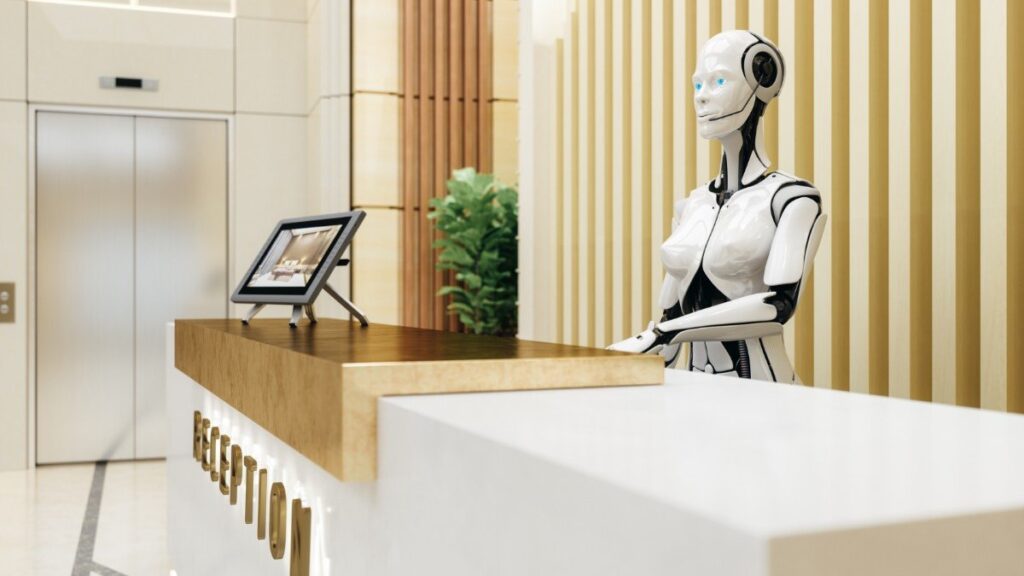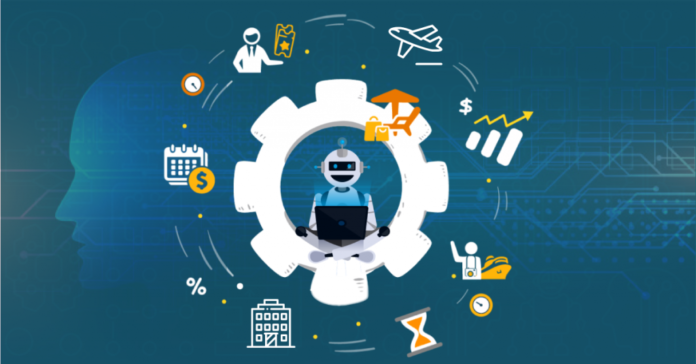Artificial Intelligence is advancing every day, providing innovative, reliable, and attractive solutions for different industries. In the travel and tourism industry, AI is still in an infancy stage and is introducing innovative solutions focused on creating unique and memorable experiences for travelers.
The technological advancements of Artificial Intelligence in the travel and tourism industry are driving the growth of the industry which is expected to cross $11 billion by 2024. The travel and tourism industry is growing at a CAGR of 38%. This growth is also attributed to the shifting trend towards flight booking apps, hotel booking apps, restaurant apps, etc. Therefore every app development company such as flight booking app development company, hotel booking app development company, and travel portal development company are adopting AI and other emerging technologies in their development processes.
There are various applications of AI in the travel and tourism industry and many others are in the development and testing phase. Below are some of the best applications of AI in the travel and tourism industry that are redefining the meaning of experiential travel.
5 Applications of AI That Have Transformed The Travel And Tourism Industry
- AI-enabled Chatbots
The most essential element in the travel and tourism industry is customer service. It plays a vital role in ensuring customer satisfaction by being available for customers and resolving their queries. Artificial Intelligence has enabled the travel industry to provide exceptional customer service through chatbots.
Travel businesses use AI-powered chatbots to provide 24/7 customer service for their customers while also reducing the workload on their staff. Moreover, the chatbots satisfy the need for instant gratification in customers through fast responses and instant information. They are programmed to answer customer queries and provide valuable information without the intervention of humans.
- Personalized Recommendations
In a technology-infused world where every individual is hooked to their smartphones, providing a personalized travel experience is essential for the success of the business. This is where AI-powered platforms play a vital role. They help customers with personalized travel plans and travel tips to facilitate time and cost-efficient travel planning.
The AI-powered platforms use machine learning algorithms to enhance the user experience with a customized touch. These platforms track and collect data on customer’s behavior, previous purchases, and searches. This data is then analyzed, based on which the users are shown search results to increase conversions and sales.
Further, the recommendation system powered by AI enables the travel businesses to understand the budget, preferences, and requirements of each user to make appropriate recommendations.
- AI Robots & Hospitality

The most intriguing application of Artificial Intelligence in the travel and tourism industry is the AI Robots. The AI Robots are being adopted by large hotel chains in the hospitality industry to provide a differentiated experience to their customers. These AI robots indulge in face-to-face interactions with customers providing them exceptional customer service.
For instance, the Hilton Hotel in the USA introduced a Watson-enabled robot concierge named Connie. Connie interacts with tourists and provides information about places to visit, where to eat, and how to find anything within the hotel. Conne uses AI, speech recognition, and domain knowledge from Watson to engage and interact with customers.
- Data Processing & Analysis
Apart from providing exceptional customer service, travel businesses also need to analyze data for pricing strategies and other important functions. Artificial Intelligence helps businesses gather data, interpret the data, and provide information on customers, shape business practices, and design pricing strategies. AI can efficiently sort huge amounts of data with increased accuracy and reduced time in comparison to humans.
The data collected and processed by AI produces results with zero-errors, increased speed and reduced costs. Therefore, data processing and analysis powered by AI help travel businesses draw conclusions about customer needs and set their pricing accordingly.
- AI-powered Suitcase

Talking about convenience, Artificial Intelligence has made it possible for travelers to walk around without having to carry or drag their luggage trolleys. Travelers are loving the hands-free and worry-free experience of walking at the airport. Though these trolley bags are expensive and very new in the industry, they have fascinated every individual.
Ovis is the first AI-powered suitcase that follows you around. This suitcase is permitted in all airlines and also has an anti-lost alarm. A computer vision technology based on machine learning algorithms is installed in Ovis which enables it to move along your side and also avoid obstacles on the way through its self-driving technology.
Conclusion
Many fear that Artificial Intelligence may take over human beings completely in the future. However, It is also believed that the travel and tourism industry requires a human touch for experiential tourism which AI may not be able to surpass alone. AI doesn’t foster human-hungry robots, rather it is a complementary dimension for the tourism industry which aids in enhancing the customer experience. It also eases the process of making travel arrangements offering a personalized experience for travelers. However, we are yet to experience more advanced applications of AI in the travel and tourism industry that will keep enhancing our travel experiences. AI has the potential to revolutionize and radically transform the travel industry.








